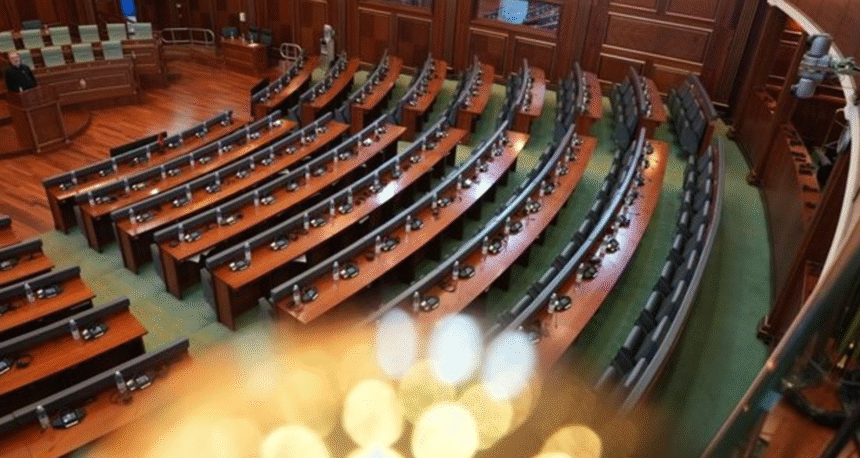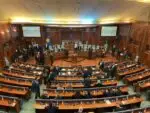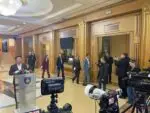Gzim Shala, a senior researcher at the Kosovo Law Institute (KDI), has described the failure to elect all deputy speakers from non-majority communities as a new blocking scenario aimed at stalling the work of the Assembly of Kosovo.
Shala noted that the Constitutional Court has so far only issued a notice and not a full ruling, calling the situation “yet another obstructionist move” following a series of similar political deadlocks since the last elections.
“Since the end of the elections, this is nothing more than another blocking scenario,” Shala said.
He recalled that there have been numerous blocking tactics, including delays in verifying deputies’ mandates and prolonging the election of the Assembly Speaker under claims that the vote must be secret. Even after the Constitutional Court’s ruling clarified the procedure, it took months for it to be implemented.
“When the leading party realized it didn’t have the required majority, it prolonged the process under the pretext of a secret vote,” Shala explained. “Even the Constitutional Court later confirmed its ruling wasn’t implemented on time.”
Following the election of the Assembly Speaker, many expected the legislature to finally be constituted, but Shala said that a new obstruction emerged regarding the election of deputy speakers from minority communities.
According to him, the KDI had long warned that this practice is unconstitutional, and the latest ruling by the Constitutional Court only confirms what the institute had previously stated.
Shala broke down the constitutional structure into two aspects:
- The Presidency of the Assembly must consist of five deputy speakers plus the Speaker, as originally designed by the Constitution.
- The Constitution clearly requires two separate votes — one for three deputy speakers from the three largest parliamentary groups, and another for two deputy speakers from non-majority communities.
“Just as you cannot separate the vote for the three deputy speakers from the three largest groups, you also cannot separate the vote for the two from non-majority communities,” he clarified.
He added that this constitutional principle has also been upheld in past practices, including during the 2021 legislature when Avni Dehari chaired the Assembly’s constitutive session.
Shala noted that the attempt to proceed by drawing lots without meeting the necessary conditions for such a process was predictably unconstitutional.
“Now, the Constitutional Court has confirmed that the Assembly of Kosovo is not yet constituted, since all deputy speakers have not been elected,” he said.
Shala emphasized that even though the current Speaker declared the Assembly constituted, this declaration holds no constitutional validity.
He further highlighted the need for efficient and lawful action rather than further delays or sabotage of the Court’s decision.
“The Constitutional Court’s ruling gives the Assembly 12 days to properly constitute itself,” Shala said. “Once it takes effect, the 48-hour deadline for scheduling sessions begins again.”
He concluded that what’s most important now is to act decisively and constitutionally, rather than seeking new ways to obstruct the implementation of the Court’s ruling.







